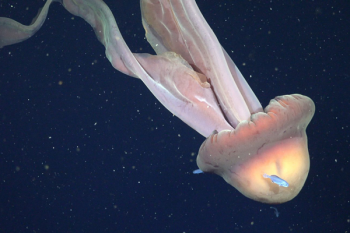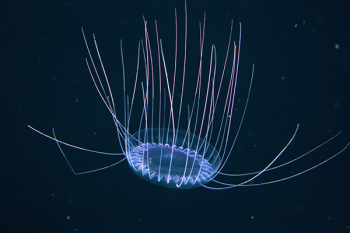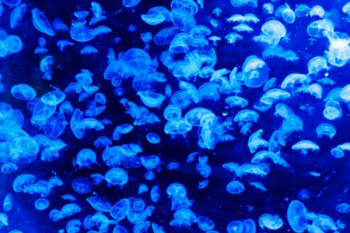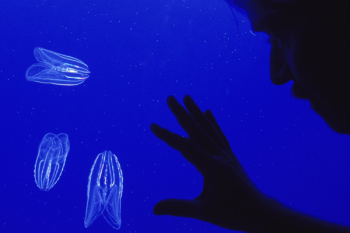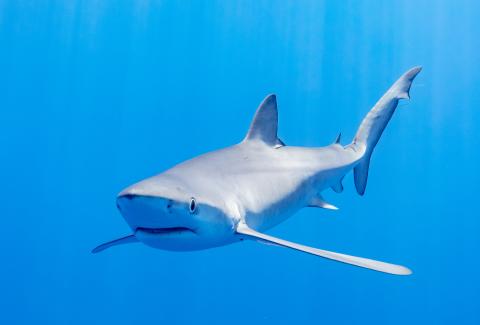
When we think of saving biodiversity at the ecosystem level, we think about the connections between all the species in an ecosystem. In our Blog, we wrote that in an ecosystem, a food web is a network of linked consumer-prey interactions. The apex predators in food webs are typically large animals that feed on other species but have no predators themselves.
Sharks are major apex predators in ocean ecosystems. In that role, they are essential to maintaining the species below them in the food chain and serve as an indicator for ocean health. Removing the weak and the sick species, and keeping the balance between competitors, sharks help to keep a ecosystems healthy and stable, conserving species diversity.
There are more than 500 species of sharks and at least one species is found in every ocean, including the Arctic Ocean. Sharks roam the ocean from the deep sea to shallow estuaries. They can be very small: deep-water dogfish (Etmopterus perryi) are only 8 inches long; or extremely large, like the aptly-named whale shark (Rhincodon typus), which, at 42 feet is the largest fish in the ocean.
When sharks large and powerful sharks move into an area, other species shift the location of where they feed and what they feed on. In this way sharks indirectly maintain habitats. The loss of sharks has been a factor in the decline of coral reefs, seagrass beds and the accompanying loss of commercial fisheries in those places.
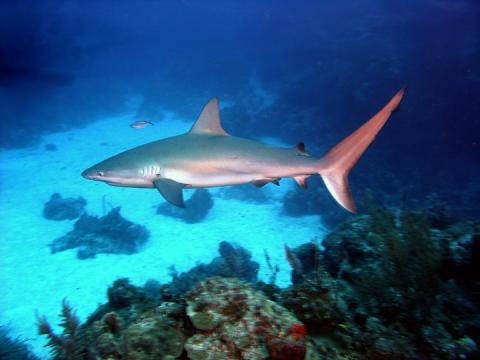
Reef sharks are especially important to help maintain the delicate balance of marine life in reef environments. On coral reefs with no reef sharks, larger predatory fish (like groupers) move in and prey on the herbivores. With fewer herbivores, macroalgae thrives and coral can no longer compete. The ecosystem is then dominated by algae, affecting the survival of the entire reef system. In 2020 scientists estimated that sharks were missing from 19% of coral reefs in the waters of eight countries, due to overfishing.
Mangroves are used by reef sharks as a nursery because the plants help protect the young sharks. Coastal development and pollution are threats to mangroves as well as to coral reefs.
Conservation
Sharks are vulnerable to overfishing because they grow slowly and don't have many offspring. They are caught for food, for their fins, and too often, as bycatch in other fisheries. The countries with the most abundant sharks tend to have no-take Marine Protected Areas (MPAs) as well as fishing regulations. MPAs are key instruments for conserving and rebuilding marine biodiversity and mitigating human impacts, including those resulting from climate change, overfishing and habitat loss.
The Bahamas have banned shark fisheries for 30 years, and the reef shark population is doing well. Another effective measure is to regulate fishing methods so sharks are caught less often by accident.
Sharks need both conservation and recovery. On reefs where sharks are present, the reef is healthy, which means that the corals and marine life are less likely to suffer from the stressors of global warming, ocean acidification and water pollution.
